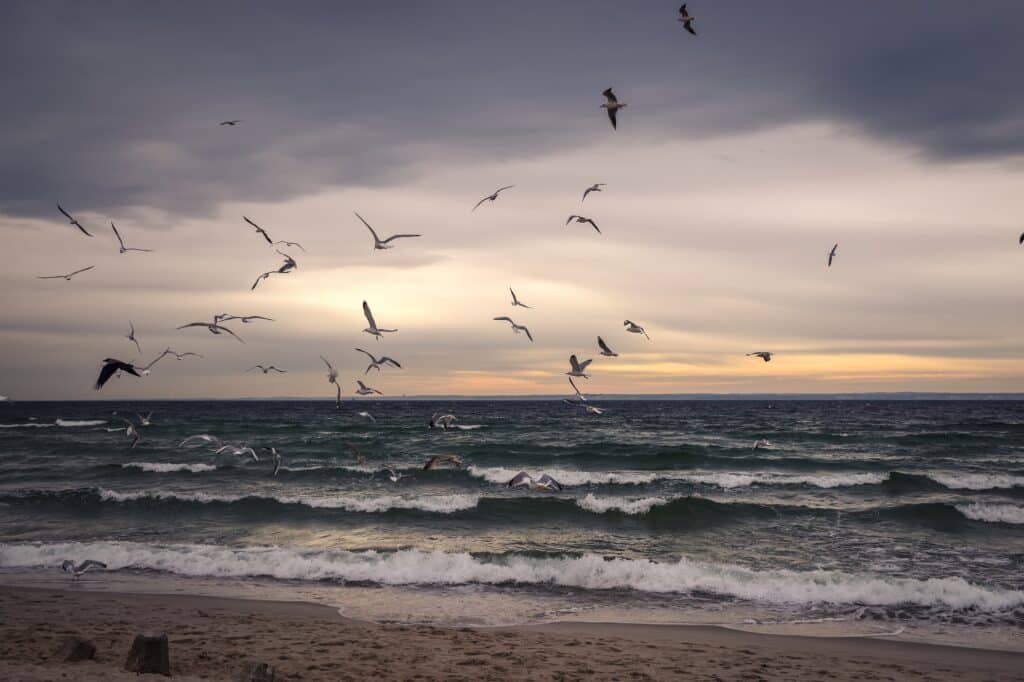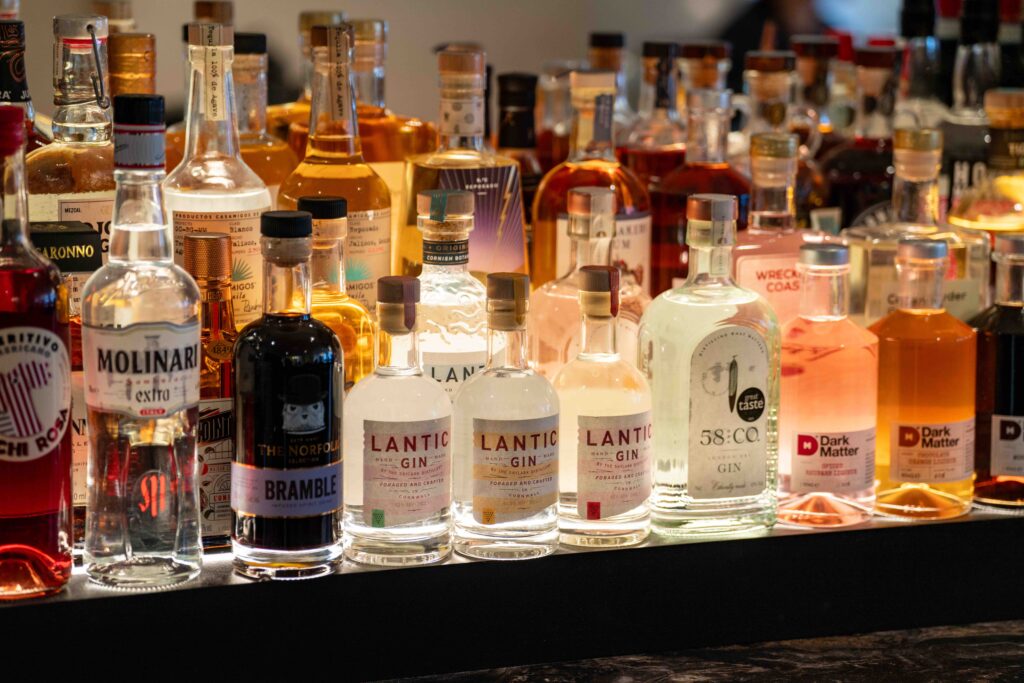![]()

![]()


Faber started as an idea to do seafood that was accessible to all and sourced, produced and served sustainably. It wasn’t ever going to be straight forward but it’s a challenge that we as a team are enjoying. It’s never ending, it’s ever evolving, and we can always do more and be better. Perfection is always on the horizon, something we are always reaching to achieve.
The very name Faber was adopted as a poignant story to start our journey.
We’ve researched and visited producers and fishing communities around the UK, not all, but some, we have many more to discover. Getting around hasn’t been easy especially as we are trying to use trains and public transport as much as possible, but it’s been an adventure.
Our fish
A topic we will cover a lot in our journal, but our fish is the centre piece of our menu, the British coastline has some of the best conditions for fish in the world (if we look after it). We use day boat catches, so our menu changes daily according to this. But we also work with suppliers and producers who don’t intensively farm or trawl stocks. This means we don’t have salmon on the menu, even by buying the good stuff we would help drive demand and add to the burden of stocks, it’s easy to replace with various species of trout that are without doubt tastier.
You won’t see tuna on our menu, Bluefin tuna is in Cornish waters for the first time in decades, but it’s not established or researched enough to be intensely fished yet. Prawns are a no go most of the year, although a staple on most menus it makes a rare appearance on ours only when stocks migrate into southwest waters. What this does give us is access to ‘A’ grade fish, that we know is caught sustainably and ethically. In fact, by working with oyster and seaweed farms, products can also be carbon and environmentally positive.
Our suppliers
One thing we found when we visited producers and communities was that they, like us shared our passion for doing it right. We found that by talking to day boat fishermen and local farms, that they understood entirely the preservation of our seas and shores for the next generation. Many are generational businesses and that alone creates a culture of custodial service to the family and the very resource they need to earn a living. Put simply they did a lot of our job for us, advising us and making recommendations for our menu and practises.
Our suppliers are all from British shores and have an ethical focus, it goes so much further than just our fish. Our ingredients are from coastal producers and very much in keeping with the seasons. We have been lucky enough to work with Shrub who give us complete transparency on the ingredients they source from small scale producers around the UK who only use regenerative and sustainably practises. Seasons can frustrate menus at times but the quality of natural fresh British ingredients more than make up for that. Our Isle of Wight heritage tomato salad is testament to that.
Bread is an interesting one, we did debate going local with a London baker to keep travel distances low, the only time we would have been non-coastal, but after extensive research with found that the primary (pre-production) carbon footprint was the issue. Lucky for us Ollie knew the team at Coombeshead Farm who’s bakery sources heritage varieties of wheat and barley instead of importing from the far ends of the word, both authentic and a far lower carbon footprint to get raw ingredients into the oven, plus the bread is some of the best we’ve ever tasted!
Seaweed is a big favourite of ours, grown or foraged it really is a sustainable crop that cleans waters, captures carbon, and can supplement our need for herbs and spices form overseas. We have a great partner in this Câr y Môr, who as well as supplying us has also been a big help in educating us.

Drinks
With the emphasis on the British shoreline the impact is immediate, no transporting spirits or beers from around the globe is a quick win, but it’s so much more than that.
Our spirits are from small scale distilleries foraging ingredients from the local landscape and consciously work to reduce their impact on our environment. At the outset we thought we may find it hard pressed to replace everyday names with these suppliers, but our house pours, and premium, back bar spirits are unique, and you won’t find a selection like it anywhere else thanks to help from ICS who aggregate all the items and then distribute on one pallet to again reduce our impact in miles. We will have a whole article coming up on our range of spirits in the near future, watch this space!
Wine is a big part of any offer and no different for us, no sacrifice on quality and breadth of range but we have managed to heavily focus on UK wines and the wider selection is from our European vineyards, avoiding long distance travel and high carbon miles. It’s an extensive list well suited to our seafood and coastal offer.
Would you believe we literally bottle the water up and transport it around the world? We didn’t like the idea so use an onsite water filet system and carbonation process. We save massively on evil carbon miles once again but also save on the biproduct of bottled water, empty bottles, they also must be thrown in a bin, collected and recycled through an intense process, it’s great they are recycled but we prefer to not have single use in the first place. It also works out as a money saver for us (less bin collections) and the guest, as we only charge a 75p cover charge for bottomless water, of which the proceeds go to Câr y Môr to help them grow further seaweed beds capturing more carbon.
Day to day restaurant stuff
Creating a restaurant from scratch meant that we were able to really think about how we run the business and put the same emphasis into that as we do to our supply chain. Being sustainable couldn’t come at the cost of the business’ feasibility, money does run out, and quickly. We did however work hard to make every decision that was environmentally conscious but realistically deliverable.
A quick win was waste management, it takes big lorries guzzling fuel to collect lots of waste and what isn’t recycled is also put in big holes in the ground. We’ve had success with our pubs in the past recycling 76% of what goes out the back door and we believe we can do more.
Glass is the heavy one, losing bottled mineral water is a game changer, but we also invested in glass crushing which reduced the collection frequency by a ratio of 5:1. For us that meant one small bin a week.
Food waste is minimal, those fish bones get roasted and turned to stock along with vegetable offcuts and we run a lean daily menu with little wastage. Even bread trimmings for instance are broken down in water and used to baste fish on the grill. What we can’t use goes into purpose food collection waste for composting.
The kitchen itself is electric throughout with induction ranges, even the heat from the pass and extraction system is reconstituted and exchanged back into the building to balance the temperature. The building is entirely electric run with gas removed from the site at the outset of the project, so that an air heat system could be used to circulate all the heat.
All in all it’s been a fantastic project to work on and in the last few weeks we’ve gained some great recognition for the forementioned but it’s only part of the journey, by our own admission we know there is much more to learn and adapt over time.
We’ve been invited to host our very ow Chef’s fish counter and tasting menu at The Holborn Dining Room, part of The Rosewood Hotel London.
Read moreThis summer we’ll be taking up residency in collaboration with Setlist @ Somerset House. Shucking oysters on the riverside terrace
Read moreFaber’s Private Hire Oyster Bar adds a unique and luxurious touch to weddings, private parties, and corporate events.
Read more
